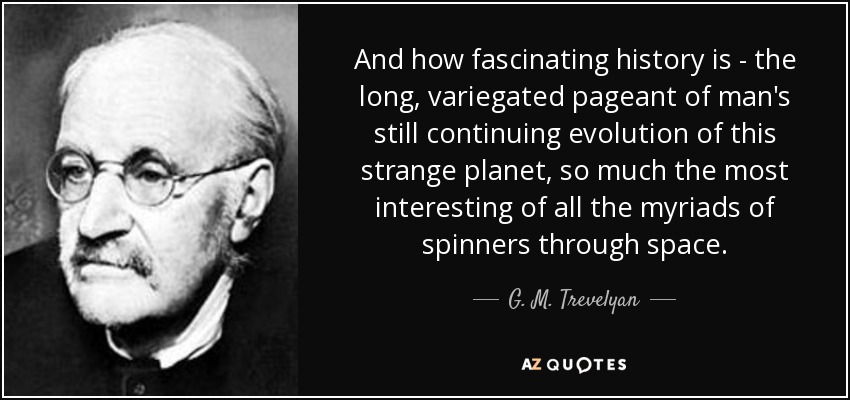There are countless interesting topics in history, each with its own unique stories, characters, and lessons. Here are just a few examples of some of the most interesting topics in history:
Ancient civilizations: From the ancient Egyptians and their pyramids, to the ancient Greeks and their democracy, to the ancient Romans and their vast empire, there is so much to learn about these civilizations that shaped the world we know today.
The Renaissance: This period of cultural, artistic, and intellectual growth, which took place in Europe from the 14th to the 17th centuries, marked a major turning point in history. It saw the birth of some of the world's most famous artists, writers, and philosophers, and it also marked the beginning of the modern era.
The American Revolution: This pivotal moment in history saw the 13 colonies in North America break away from British rule and form the United States of America. The revolution was fueled by a desire for independence and the belief in the ideals of democracy and liberty.
World Wars: The two world wars of the 20th century had a profound impact on the course of history, and they continue to be studied and remembered today. The causes, events, and consequences of these wars offer a wealth of fascinating material for exploration.
The Civil Rights Movement: The struggle for civil rights and equality for African Americans in the United States has a long and complicated history. The Civil Rights Movement of the 1950s and 1960s, which was led by figures like Martin Luther King Jr., played a crucial role in bringing about important changes and advancements for minority groups in the country.
These are just a few examples of the many interesting topics in history that are worth exploring and learning about. The study of history helps us to better understand the world we live in today and the people and events that have shaped it.
Jawaharlal Nehru was a prominent leader in India's struggle for independence from British rule and later served as the country's first prime minister. Born in Allahabad, India in 1889, Nehru came from a well-educated and influential family. His father, Motilal Nehru, was a prominent lawyer and political leader, and his mother, Swaruprani Thussu, was a socially active and dedicated member of the freedom movement.
Nehru received his early education in India and later studied at Trinity College, Cambridge and the Inner Temple in London, where he earned a degree in law. After returning to India, he began practicing law and became involved in the Indian National Congress, a political party that was actively campaigning for India's independence from British rule.
As a member of the Congress, Nehru played a key role in the Non-Cooperation Movement, a campaign of civil disobedience that sought to nonviolently resist British rule. He was also a leader in the Salt Satyagraha, a campaign of civil disobedience against the British salt tax. These campaigns brought Nehru to the forefront of the independence movement and earned him a reputation as a powerful and inspiring leader.
After India gained independence in 1947, Nehru became the country's first prime minister and served in that role until his death in 1964. During his tenure, Nehru implemented a number of important economic and social policies, including the creation of a mixed economy, the development of a comprehensive education system, and the establishment of a secular and democratic government.
Under Nehru's leadership, India also made significant progress in the fields of science and technology, including the development of nuclear weapons and the launch of India's first satellite. Nehru was also instrumental in the formation of the Non-Aligned Movement, a group of countries that sought to remain neutral in the Cold War between the United States and the Soviet Union.
Despite the many challenges he faced, Nehru remained a dedicated and tireless leader, working tirelessly to improve the lives of the people of India. His vision for a modern and progressive India continues to inspire people around the world today.
In conclusion, Jawaharlal Nehru was a pivotal figure in India's struggle for independence and a leader who played a key role in shaping the country's future. His dedication to social justice and progress, as well as his belief in nonviolence and democracy, continue to inspire people around the world today.
There are many interesting topics in history that are worth exploring and learning about. Here are a few examples:
The ancient civilizations of Egypt, Greece, and Rome: These civilizations have had a major influence on the world and have left a lasting legacy. From the pyramids of Egypt to the democratic ideals of Greece and the monumental architecture of Rome, these civilizations have shaped the way we think and live today.
The Renaissance: This period of great cultural and intellectual growth marked the transition from the Middle Ages to the Modern Era. It saw the development of humanism, the revival of classical learning, and the growth of science and exploration. The Renaissance also gave rise to some of the most famous figures in history, including Leonardo da Vinci and William Shakespeare.
The American Revolution: This event marked the birth of the United States as an independent nation and had a major impact on the course of world history. It was a time of great political and social upheaval, as the colonies revolted against British rule and fought for their independence. The American Revolution also sparked similar movements for independence and democracy around the world.
The Industrial Revolution: This period saw the development of new technologies and the growth of industry, which had a profound impact on society and the economy. The Industrial Revolution led to significant advances in transportation, communication, and manufacturing, and it paved the way for the modern industrialized world we know today.
World Wars I and II: These two global conflicts had a significant impact on the world and shaped the course of history in the 20th century. They involved the majority of the world's nations—including all of the great powers—eventually forming two opposing military alliances: the Allies and the Axis. These wars resulted in the deaths of millions of people and had far-reaching consequences, including the creation of the United Nations and the decolonization of many countries.
Overall, there are countless interesting topics in history that are worth exploring and learning about. From ancient civilizations to modern global conflicts, the study of history helps us to understand the past and how it has shaped the world we live in today.






